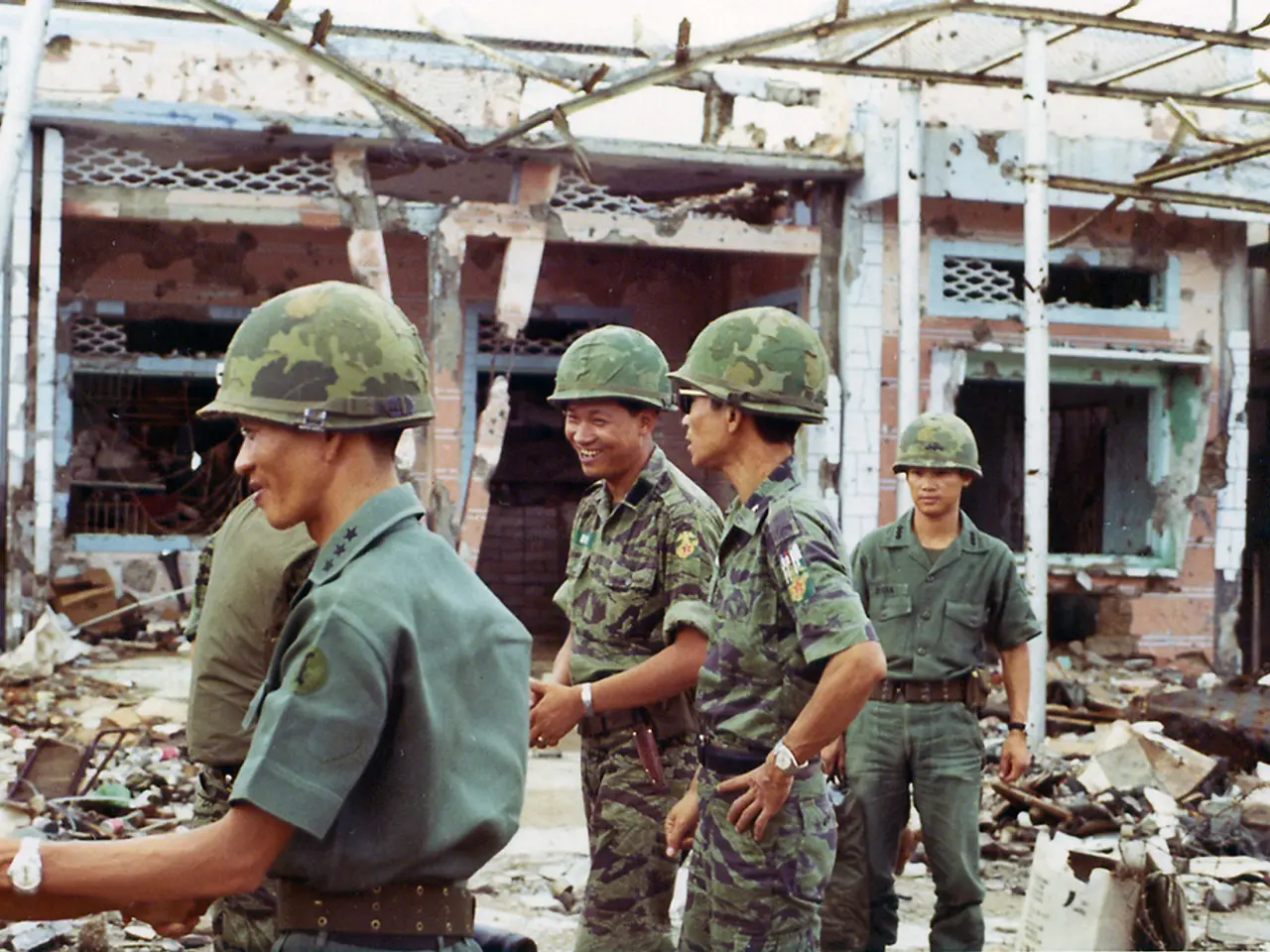Descendants of Holocaust Survivors Advocate forTruce: Their Background Drives This Demand
In the ongoing Israeli-Palestinian conflict, the memory of the Holocaust has become a contentious issue, with some descendants of Holocaust survivors advocating for peace and an end to violence, while others use it to justify escalating military actions.
Rabbi Elliot Kukla, a spiritual care provider and member of Rabbis for Ceasefire, is one such descendant who uses his inherited trauma to advocate for a ceasefire and arms embargo on Israel. He argues that there is a moral obligation for him, as a rabbi, to help his community grieve and heal so they can bear witness to what is happening now.
Similarly, the Jewish Network for Palestine (JNP) and Jewish Voice for Peace, a U.S.-based organization, have staged rallies for a ceasefire this year, attracting thousands of protestors. These groups view the Holocaust memory as a call to oppose violence and occupation rather than justify it.
On the other hand, some political groups and mainstream pro-Israel advocates invoke the Holocaust to justify Israel's right to self-defense against perceived existential threats, supporting escalated military responses and rejection of ceasefires or arms embargoes. This perspective argues that Jewish historical trauma necessitates strong measures to ensure Israel's security and survival.
However, leading Holocaust scholars like Professor Omer Bartov criticize this weaponization of Holocaust memory, calling it a distortion of the "never again" message, and highlighting that such uses enable ongoing atrocities in Gaza.
The 2023 FBI crime report showed a sharp rise in hate crimes towards all minority groups in America, including antisemitic and Islamophobic incidents. This underscores the importance of addressing historical trauma and promoting understanding and empathy across communities.
Rabbi Elliot Kukla's grandfather, Max, was a political prisoner and died in Auschwitz at the age of 24. Max's neighbors helped arrange false Aryan papers for Rabbi Elliot Kukla's grandmother and hid, bathed, fed, and protected his infant father. These acts of courage and compassion serve as a reminder of the power of solidarity and the importance of standing against oppression, occupation, and genocide.
In conclusion, the divergence in how Holocaust memory is employed reflects broader debates within Jewish and global communities about ethical responsibility, historical memory, and contemporary politics in the Israeli-Palestinian conflict. It is crucial for all parties to remember the lessons of the past and strive for peace and justice in the present.
- Rabbi Elliot Kukla, whose grandfather perished in Auschwitz, uses his inherited trauma to advocate for a ceasefire and arms embargo on Israel, framing the Holocaust memory as a call to end violence and occupation.
- The Jewish Network for Palestine (JNP) and Jewish Voice for Peace, in line with this, stage rallies for a ceasefire, viewing the Holocaust memory as an impetus to oppose occupation rather than justify it.
- In contrast, some groups invoke the Holocaust to support Israel's right to self-defense, arguing that Jewish historical trauma necessitates strong measures for Israel's security and survival, a perspective that Holocaust scholars like Professor Omer Bartov critically call a distortion of the "never again" message.








